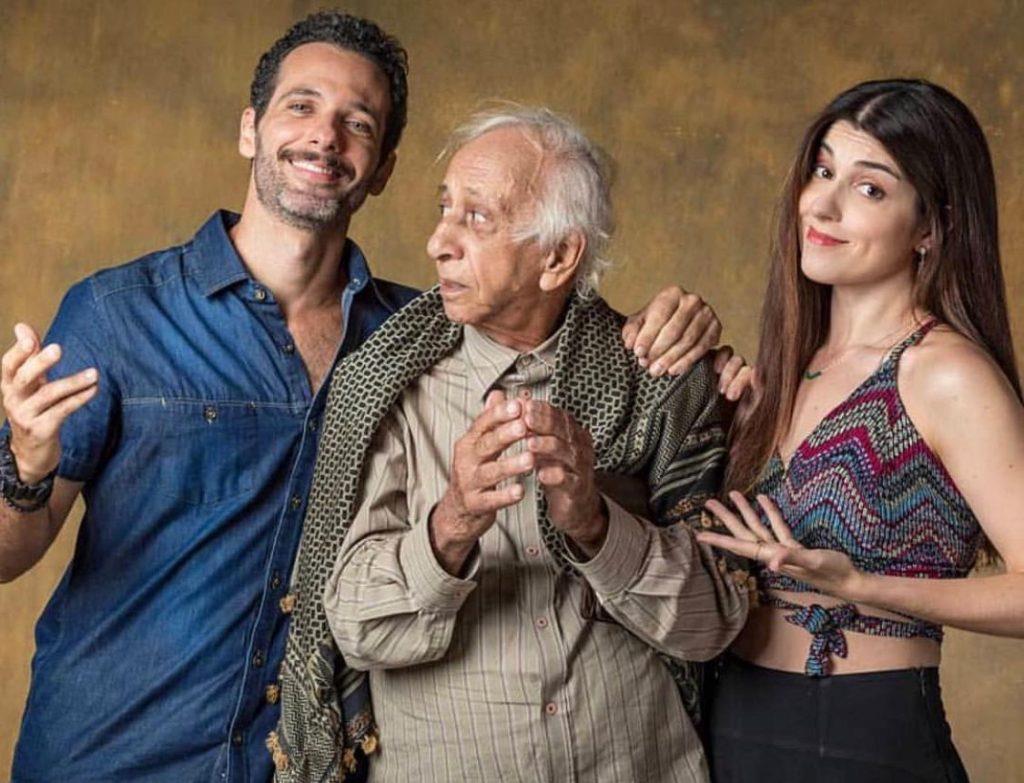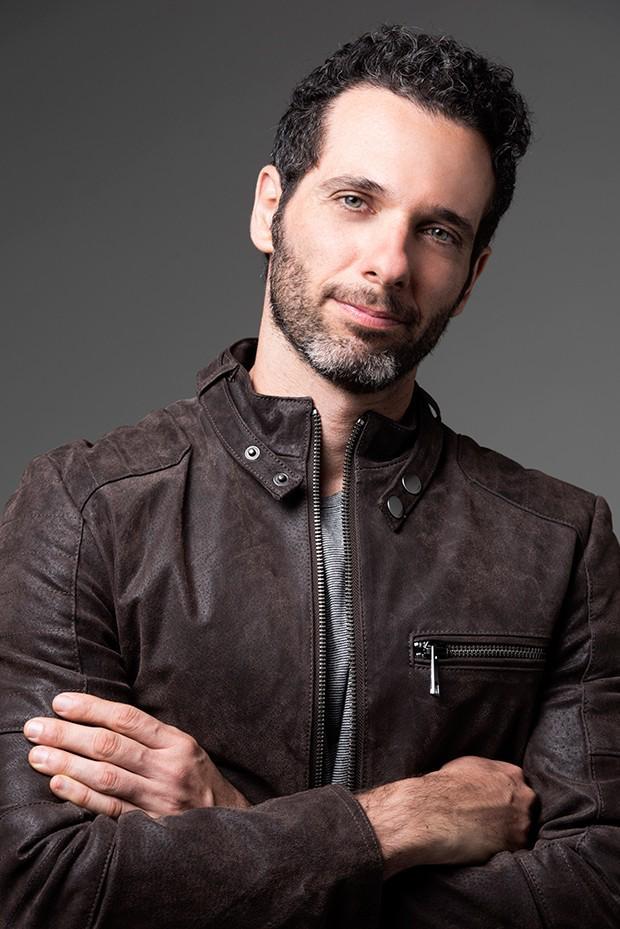
Mouhamed Harfouch Brings Syrian Origins To Stage
“The premise of my play is that every name holds a story, and it's through my name that I'll present my story on stage. During the creation process of the play, I realized that a name is never just a name-it's a journey, it speaks of your entire ancestry,” says Harfouch.

Harfouch (L) as Ali, with castmates from“Órfãos da Terra”
The middle child of a Syrian father and a Brazilian mother, the actor will talk about his father's story and the Arab influence on his television career.
“As I grew up, I lived with my Western friends and my Arab roots. When I saw my father speaking Arabic with relatives who live in Syria, it always seemed like something magical, mystical. Over time, I became more connected with my roots, and this created a sense of belonging. And now I want to tell my story to honor the Arab culture.”
Before creating this monologue, Harfouch, who has 30 years of experience as an actor, had already had professional experiences that brought him closer to his roots.
“It was in 2006, in the soap opera Pé na Jaca, that I played my first Arab character , Houssein,” he says. The actor had to speak with an Arabic accent.“As I'd never done it before, I thought it would turn out badly, but I tried and imitated my father, and in the end, it was great,” he recalls.
After this first role, Harfouch went on to play three other Arab characters on TV Globo: Farid in Cordel Encantado in 2011, Pérsio in the telenovela Amor à Vida, which aired in 2013, and six years later, Ali, his most recent Arab character in Órfãos da Terra.
“For me, it was very important and meaningful to have had the opportunity to portray these. For the Arabs living here in Brazil, I think seeing such a character in a Globo telenovela is a chance to feel represented, to feel close to others,” explains Harfouch.
“These characters also become a way to present Arab culture to those who are unfamiliar with it and in a way, help combat prejudice from those who don't know what Arabs are like.”
Arab influence since Harfouch's childhoodIt was between the 1960s and 1970s that Mouhamed's father arrived in Brazil. Young, alone, and not speaking the native language, Nadim Harfouch worked various jobs, including as a street vendor and peddler, to send money to his family in Syria.
“After a few years, he met my mother and started working as a real estate agent. When I look back and see how brave my father was, I feel very proud because at that time there weren't as many opportunities as there are now, so he had to work really hard to succeed in the country,” says the actor.

Harfouch says he is proud of his father's courage
“Just as he had to fight hard when he arrived in Brazil, I also had to when I decided to become an actor, without the influence or help from anyone. I drew a lot of inspiration from his courage to follow my own path.”
For many years, even without realizing it, his Arab roots were present in many moments of his life.“My father spoke Arabic at home quite frequently, and without realizing it, I ended up learning to understand several words. I can't actually speak it, but I understand a bit of this highly complex language. And that accent ended up seeping into my profession,” says Harfouch.
In addition to the language, Arab music and cuisine were also part of his everyday life. And to ensure this tradition doesn't end with him, Harfouch decided to pass it on to his two children.
“The Arabic dishes that my mother used to make for me when I was a child, now I make for my two children. They love Arabic music, and my youngest, Bento, unknowingly mimics gestures I used to see my father making.”
Read more:
Eduardo Mossri revisits his roots via theater
Report by Rebecca Vettore, in collaboration with ANBA.
Translated by Guilherme Miranda
SuppliedSuppliedSuppliedThe post Mouhamed Harfouch brings Syrian origins to stage appeared first on ANBA News Agency .
.jpg)
Legal Disclaimer:
MENAFN provides the information “as is” without warranty of any kind. We do not accept any responsibility or liability for the accuracy, content, images, videos, licenses, completeness, legality, or reliability of the information contained in this article. If you have any complaints or copyright issues related to this article, kindly contact the provider above.





















Comments
No comment